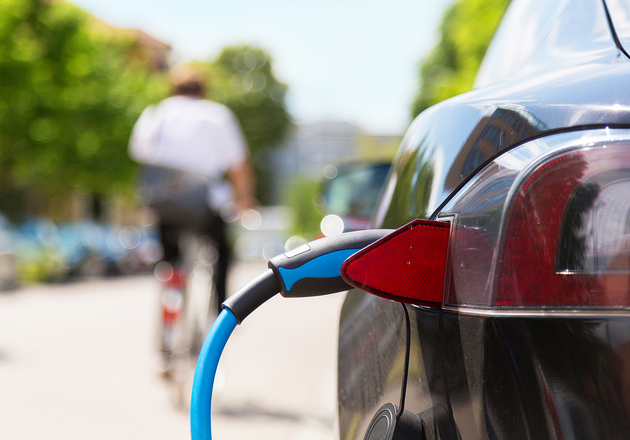
Photo/VCG
Dec. 11 (NBD) – China's wholesale volume of new-energy vehicles (NEVs) hit 136,000 units in November, a year-over-year surge of 55.9 percent, with the volume for pure electric models increasing by 65 percent, data from the China Passenger Car Association showed.
A total of 886,000 new-energy passenger vehicles were shipped during the January-November period.
Despite the rapid growth of the NEV market, China's fast-growing NEV manufacturers could be significantly hit by the removal of the country's NEV subsidies.
It is widely believed that competition will intensify in Chinese NEV market in 2020 when China's NEV subsidies are scheduled to be removed. At that time, without subsidies in the picuture, prices of NEVs may rise accordingly and it's not sure whether or not consumers are still willing to buy.
Chen Qingtai, chairman of the council of think tank China EV100, pointed out that in 2020, consumers' buying decisions will be made depending on factors such as a car's quality, brand and price, rather than subsidies.
In addition, multinational auto giants and joint ventures (JVs)'s entering the domestic market will pose threats to the local automakers.
By 2020, German auto manufacturer Volkswagen plans to launch 13 NEVs in China while Japan's Nissan will release more than 20 new electric vehicles.
General Motors also expects to introduce at least 7 models to the market.
But Chinese NEV start-ups still have opportunities to stand out in the competition. As traditional fuel-powered cars remained the major source of earnings for JVs, it will take them two to three years to become focused on NEV business, Wu Kezhi, general manager of the NEV department of Chang'an Auto, predicted.
Therefore, there leave three to four years for domestic automakers to accelerate business expansion, added Wu.
In the view of insiders, collaborations among NEV companies could be a win-win solution. Chinese car companies need to form an alliance, conducting cooperation in the fields including vehicle platform sharing, electric drive platform sharing and intelligentization so as to effectively reduce the cost of platforms and popularize electric vehicles, Wu said.
Besides, a complete industrial chain is of great importance. Original equipment manufacturers can't solve all the problems in the entire ecological chain of the industry. Wu noted that apart from partnerships among firms in the same sector, cross-industry resource sharing is awaited.
However, Wu held that it is difficult to achieve platform sharing on account of different business logic and interest demands of enterprises. The automobile development platform of a car firm is like the foundation of a house, and the platform sharing is bound to damage the company's core competitiveness.
What's more, how to divide the interests is another major obstacle to the building of the sharing platform.
Email: zhanglingxiao@nbd.com.cn


 川公网安备 51019002001991号
川公网安备 51019002001991号





